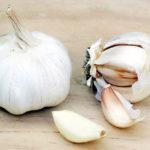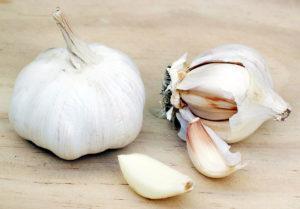Dengue is a mosquito-borne virus that causes infection with flu-like symptoms that can progress into severe dengue or Dengue Haemorrhagic Fever (DHF). Detrimental inflammation during infection can cause DHF or dengue shock syndrome (DSS). Dengue has become increasingly prevalent, where half of the global population is at risk of infection.1 The oxidative stress response during dengue virus infection has been studied as a source of inflammation that can help propagate the infection. The mechanism connecting oxidative stress is thought to be the release of free radicals, signaling inflammatory cytokines that can cause excess inflammation and other severe symptoms during infection.
Garlic is commonly used in herbal supplements that are thought to act as an anti-inflammatory against ailments due to its organosulfur compounds. Garlic has been previously implicated as a source of treatment in dengue virus infection, whereby garlic foodstuffs can suppress nitric oxide production, thus downregulating inducible nitric oxide synthase (iNOS) expression. This occurs during the inhibited NF-κB pathway, where garlic further inhibits the protein complex. Moreover, studies have indicated garlic can inhibit oxidative injury, as well as decreasing reactive oxygen species (ROS).
Researchers from the University of South Carolina investigated the role of three active organosulfur compounds found in garlic – diallyl disulfide (DADS), diallyl sulfide (DAS), and alliin – on inflammation and oxidative stress through cytokine, lipid peroxidation, and protein expression. ELISA assays were used to measure pro-inflammatory cytokines, IL-8, IL-10, and tumour necrosis factor alpha (TNF-α) levels. It was found that the garlic compounds reduced the levels of all three measured pro-inflammatory cytokines during dengue virus infection and at all selected compound doses. Furthermore, when researchers assessed anti-oxidant activity of the three compounds during infection, decreased oxidative stress was observed. Lipid peroxidation-induced oxidative stress, a contributor of inflammation, also decreased with all three compounds, as shown by decreased reactive aldehyde products, indicators of oxidative damage. Lastly, researchers evaluated iNOS levels in dengue virus-infected human cell lines and found that iNOS was reduced when cells were exposed to the three active compounds, corresponding to previous literature.
The anti-inflammatory and immunomodulatory nature of garlic indicates it can treat dengue virus infection symptoms at the cellular level. Though the molecular mechanisms and clinical outcomes of garlic organocompounds are not assessed in this study, garlic acts as a promising candidate for supplementary treatment to those infected with dengue virus.
References
1World Health Organization. April 2017 (updated). Fact sheet: dengue and severe dengue. Geneva, Switzerland.
Article by Rebecca Ng

